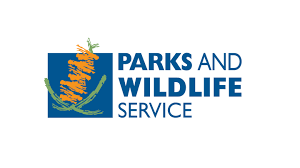It’s been another busy year for Southern Biosecurity Group (SBG).
Our vision is to be proactive in encouraging all stakeholders to adopt sound biosecurity practices, for the purpose of minimising environmental, economic and social impacts of animal pests and weeds on agricultural industry, landscapes and biodiversity values in the Ravensthorpe Shire. All of our activities are focused on achieving this vision.
This update provides a brief overview of some of the activities we’ve been involved in over the course of the year.
Declared pest rate
This year marks the first time that the declared pest rate (DPR) has been levied in the Shire of Ravensthorpe. Under the Biosecurity Management Act (2007), Recognised Biosecurity Groups have been required to become self-sustaining. Financial support from the State Government must now to be obtained through implementing a declared pest rate.
Funds raised through the DPR and government co-contribution support the commercial, environmental and social values of the Ravensthorpe community. For more information on the declared pest rate visit www.agric.wa.gov.au/bam/declared-pest-rates-0.
Wild Dog Control
Wild dog control has continued to take place within the shire. For the last financial year, stock losses were estimated at 58 head. Fourteen dogs were trapped or shot in the 2017/18 financial year. Dogs that take a 1080 bait are not always located and are therefore difficult to accurately count.
Survey
We are seeking your input into Southern Biosecurity Group’s priority activities for the 2019/20 financial year.
In 2018/19 we’re working on the following:
• Wild dog control
• Foxes
• Rabbit control
• Building skills and knowledge
Here’s your chance to have your say on where the declared pest rate is being spent. Visit https://www.surveymonkey.com/r/VK259B8 to have your say!
Cactus control
Through a State NRM funded project, we’ve been working to control Drooping Prickly Pear in the Oldfield River corridor.
The viability of cacti plants and seed is several years and this work will need to continue for the longer term to ensure that the Drooping Tree Pear is eradicated from the river system and is not allowed to move onto agricultural land and into the many parks and reserves within the shire. This project is funded from grants received and will not be included in the declared pest rate projects. A funding application was submitted to the Department of Primary Industries and Development which we should know the outcome of in the coming weeks.
You can help by reporting any sightings of cacti plants, so that control measures can be undertaken. We wish to thank the Shire and Department of Biodiversity, Conservation and Attractions for their contribution to killing plants that have been identified outside of the river system. By all working together we can make a difference.
Rabbits
A licensed pest management technician has carried out one release of the rabbit virus (RHDV K5) in the shire. A follow up release will take place in March 2019. We encourage you to report hotspots of rabbit activity so that consideration maybe given to locations for the next virus release. Contact the SBG Executive Officer (sbg.execofficer@gmail.com).
State Barrier Fence
During the holiday period many like to go camping. A reminder that it is illegal to travel the SBF without a permit. This can be a dangerous area as licensed pest management technicians may discharge firearms and baits are frequently dispersed in the area.
Repairs are currently being carried out along the State Barrier Fence to fix damage caused by the 2017 floods.
Starlings
Residents and travellers are urged to keep watch for unusual birds after detections of starlings along the State’s south coast. The common starling is considered one of the world’s worst bird pests. They feed on cultivated grain and horticultural crops, disperse weeds, foul wool and can displace native birds. They form large flocks with a high level of noise, and in populated areas can be a serious nuisance and cause damage to buildings. Early detection and control is critical to preventing an established population in Western Australia. To report suspect sightings, call 9368 3080 or go to mypestguide.agric.wa.gov.au
The Southern Biosecurity Group committee would like to wish everyone a safe and Merry Christmas as you meet with family and friends. If you have an interest in becoming involved with the management of the group, we would welcome new faces. Attendance at RAIN meetings will also keep you informed of the group’s activities. Contact email sbg.execofficer@gmail.com to find out more.
Pests and Weeds - Your environment ∙ Your responsibility ∙ Your legacy










